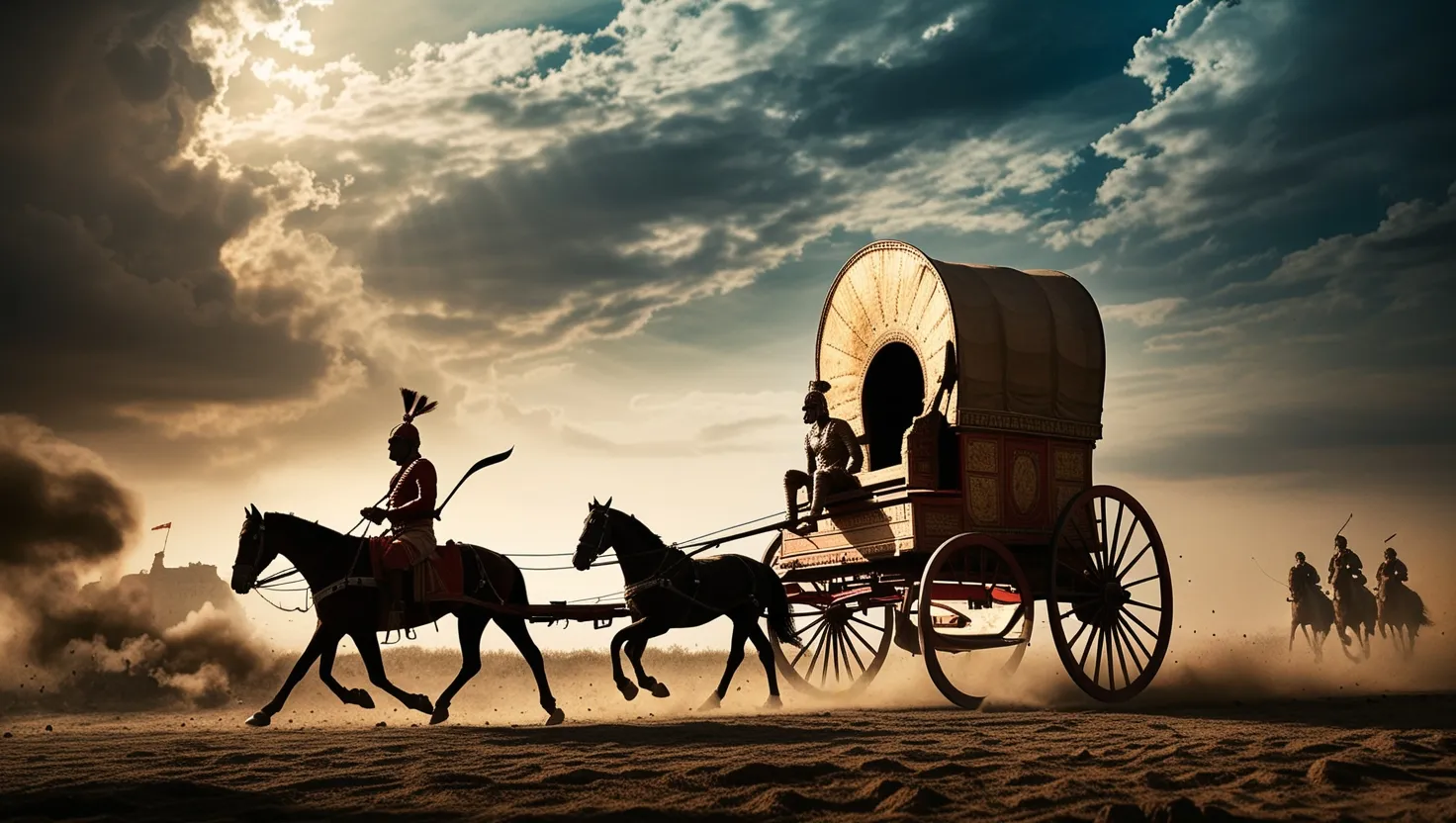The Pandavas’ exile, a pivotal chapter in the Mahabharata, is more than just a tale of hardship and struggle; it is a rich narrative of personal growth, resilience, and the transformative power of adversity. As we delve into this epic period, we find ourselves reflecting on the universal themes that make this story so enduring and relevant.
Imagine being stripped of everything you hold dear – your kingdom, your wealth, your honor – and forced to live in the harsh wilderness. This was the reality for the Pandavas, the five brothers who were once the rightful heirs to the throne of Hastinapur. Their journey began after a deceitful game of dice, orchestrated by their cunning cousin Duryodhana, which led to their exile for thirteen long years.
As they ventured into the forest, the Pandavas were accompanied by their wife, Draupadi, and a few loyal Brahmins, including the sage Dhaumya. The initial days were marked by sorrow and despair, but it was here, in the midst of nature’s unforgiving beauty, that they discovered the true meaning of resilience. The forest, with its extreme weather conditions, scarcity of food and water, and constant threats from wild animals and demons, became their crucible.
One of the lesser-known aspects of their exile is the role of Sri Krishna, their cousin and mentor. When Krishna learned of their plight, he hastened to the Kamyak Forest to offer his support. His words of wisdom were not just comforting but also profound. He advised the Pandavas to remain vigilant and not lose heart, emphasizing that their current suffering was a necessary step towards their ultimate victory. Krishna’s presence was a beacon of hope, reminding them that even in the darkest times, there is always a way forward.
Draupadi’s anguish during this period is a poignant reminder of the emotional toll of their exile. Her questions to Krishna, laced with anger and sorrow, reflect the deep-seated pain of being wronged and the longing for justice. Krishna’s response, promising that the Kauravas would face a far greater suffering, was not just a reassurance but also a testament to the cosmic balance of justice.
The exile was not merely a physical challenge but also a spiritual journey. The Pandavas spent their days in meditation and contemplation, seeking guidance from the sages and hermits they encountered. These interactions broadened their understanding of dharma and the complexities of human nature. They learned valuable lessons about the transient nature of power and wealth, realizing that true strength lies in one’s character and integrity.
Life in the forest was austere and simple, yet it was here that the Pandavas discovered the beauty of living in harmony with nature. They relied on their skills and resourcefulness to survive, a stark contrast to their previous life of luxury. This period of solitude allowed them to reflect on their past actions and contemplate their future. It was a time of introspection, where they gained valuable insights that would shape their character and prepare them for the battles ahead.
The Pandavas’ encounters with various beings in the forest were not just random events but pivotal moments of growth. From the mythical beings to the common people they met, each interaction taught them something new about leadership, governance, and the human condition. These experiences honed their skills, making them more adept at handling the complexities of life.
Draupadi’s role during this period is particularly noteworthy. Her unwavering support for her husbands and her fiery determination to seek justice are themes that resonate deeply. She was not just a passive victim but an active participant in their journey, her strength and loyalty serving as a beacon of hope in the darkest times.
The story of the Pandavas’ exile is a timeless reminder of the importance of adaptability and continuous learning. In a world where change is the only constant, their journey teaches us to be resilient, to adapt, and to learn from every experience. It shows us that even in the most challenging circumstances, there is always an opportunity for growth and self-discovery.
As we reflect on the Pandavas’ journey, we are reminded of the transformative power of hardship. Their exile was not just a punishment but a preparation for the greater battles ahead. It was a period that tested their character, their resolve, and their commitment to righteousness. And it was through this ordeal that they emerged stronger, wiser, and more determined than ever before.
The legacy of the Pandavas’ exile is one of strength, courage, and unwavering commitment to righteousness. It serves as a reminder that true power lies not in wealth or status but in one’s character and integrity. Their story continues to inspire generations, teaching us valuable lessons about resilience, determination, and the importance of upholding one’s principles even in the face of adversity.
In the end, the Pandavas’ exile is more than just a chapter in an ancient epic; it is a universal tale of human resilience and the power of personal growth. It reminds us that no matter what challenges we face, we have the strength within us to overcome them, to grow, and to emerge stronger and wiser. This is the enduring message of the Pandavas’ exile, a message that continues to resonate with us today.






